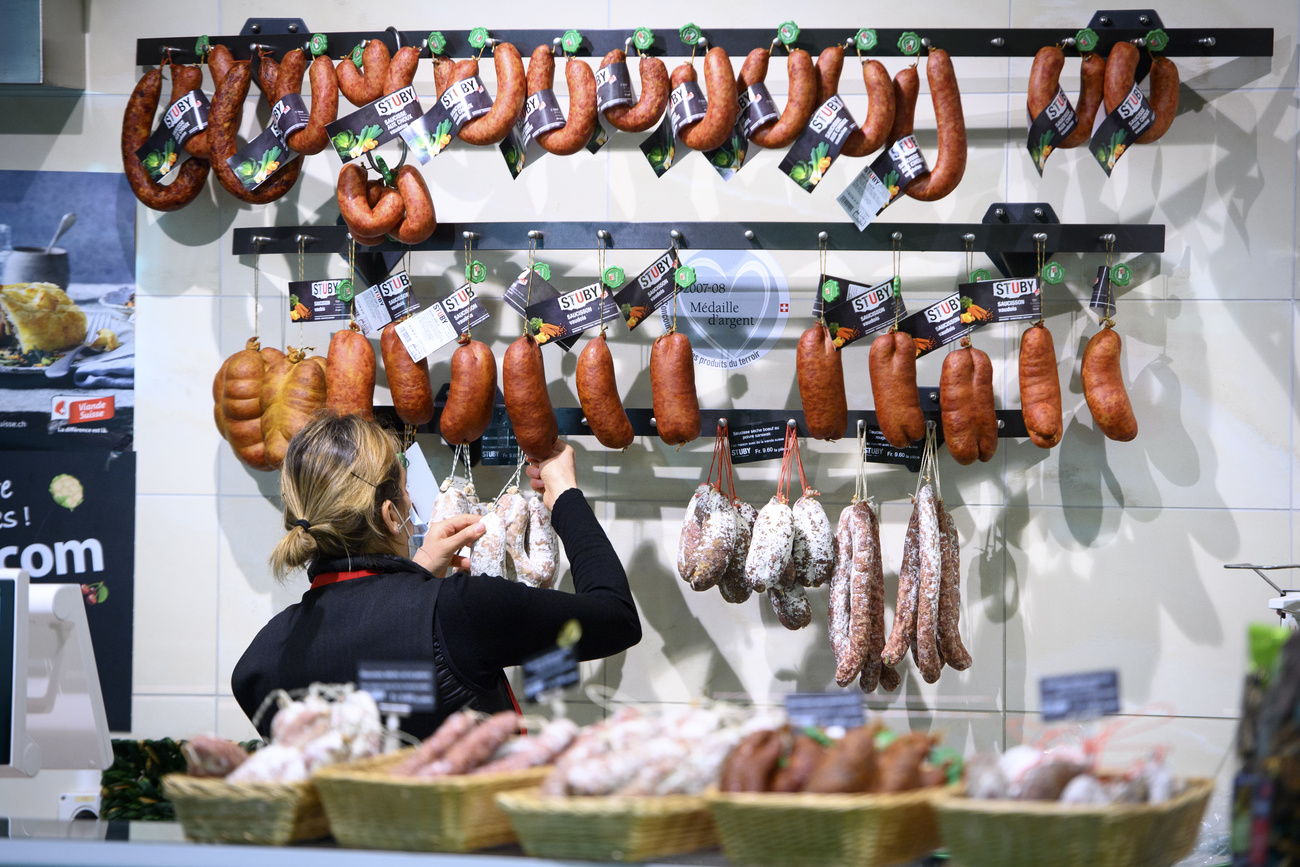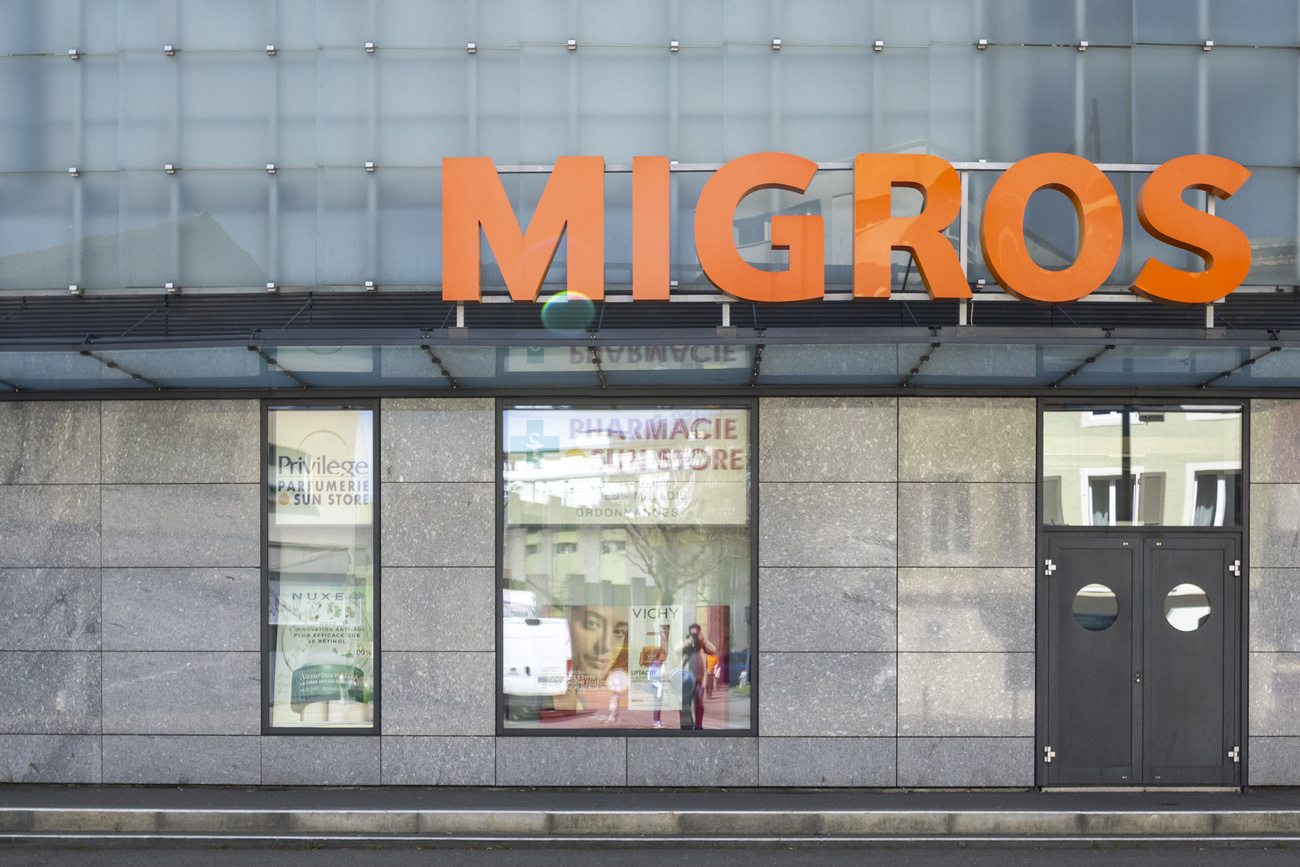

Switzerland Today
Dear Swiss Abroad,
Sunday's double "no" vote in Switzerland continues to fuel lively debate. Opinions differ, but most observers agree on one point: the status quo is not the solution, either for biodiversity or for the occupational pension scheme. However, solutions that are likely to win majorities have yet to be found.
In today’s briefing, we have a report on Swiss butchers, who are under pressure, and the retail giant Migros, which has succeeded in exporting its model to Turkey.

As is often the case, the Swiss Abroad voted slightly differently on Sunday from the resident population back home. The majority of the diaspora said yes to the biodiversity initiative and narrowly rejected the government-backed reform of the occupational pension scheme.
In contrast to the situation back home, most Swiss Abroad voters supported the biodiversity initiative. Similar differences had already been observed during the climate vote in June 2023 (when the “yes” vote from the Swiss Abroad was much higher than that of voters back home), and again in June 2021 with the CO2 law, which was rejected by the Swiss electorate as a whole but accepted by the diaspora.
Martina Mousson, a political scientist at the gfs.bern research institute, sees a “pattern emerging” whereby expatriates vote more in favour of the environment. “This is linked to the demographics of this group, which is generally more left-wing and more concerned about the environment. They have a higher level of education and tend to take a more global approach to issues,” she explains.
The Swiss Abroad also rejected the revision of the occupational pension scheme, but not so clearly. Martina Mousson suggests one possible explanation: doubts about the urgency of reform, which arose in Switzerland as a result of a miscalculation in state pension financial forecasts, were probably less prevalent among the Swiss Abroad.
- Article by my colleague Pauline Turuban

After the failure of the vote on the reform of the occupational pension scheme, the Swiss press is looking for those responsible. Several newspapers attribute the victory to the left and the unions, and describe the result as a slap in the face for the centre-right and right-wing parties.
The Fribourg daily La Liberté points out that the original plan to reform the second pillar was a compromise drawn up by the social partners. It provided for a solidarity contribution financed by high incomes, which politicians on the right rejected. By “unravelling the dossier”, right-wing parties “signed its death warrant in the vote”.
However, some German-language media believe that the left and the unions used the wrong arguments to combat the reform. “Overall, [the unions’] slogan ‘Pay more, get less’ was simply wrong,” wrote the online news site Watson. For its part, the St Galler Tagblatt denounced a “dishonest approach unworthy of direct democracy”.
“The second pillar remains at a standstill,” said the Italian-language daily LaRegione. It points out that citizens have now refused three times to lower the conversion rate [a fixed percentage used to calculate the level of annual pension payments based on the amount of retirement assets saved], after votes in 2010 and 2017. The newspaper interprets Sunday’s result as “another victory for the unions and the left, who are now demanding a ‘dose of solidarity’ in the second pillar too”.
- Read thepress review (in French)External link on bluewin.ch
More

Even though the Swiss have not reduced meat consumption, pressure on the country’s butchers is rising. Butchers are often taken over by large distributors or merge, Daniel Schnider, director of the Swiss Meat Trade Association, told the German-language CH Media press group.
“Butchers rarely close down because their business is not profitable,” says Schnider. As well as the pressure from supermarkets, butchers are also finding it hard to find solutions when they retire.
“40 years ago, 2,400 companies were members of the Swiss Meat Trade Association. Today, there are just 900,” says the director. The number of butchers’ shops has recently fallen and the association is losing members, but the overall number of employees remains stable at 24,000.
The head of the organisation also points out that consumer demand has increased. In his view, it is no longer enough to simply sell meat – you also have to offer catering services. “But you can’t produce saveloy sausages at 5am and grill them until late at night,” he laments.
Report by the Keystone-ATS news agency

Did you know that Swiss supermarket chain Migros has a Turkish cousin? It’s called Migros Ticaret and uses the same logo and has the same founder. But today the Turkish retail group has little in common with the Swiss giant.
Migros Ticaret was founded in 1954 following an initiative by the city of Istanbul, which was struggling to feed its rapidly growing population in the post-war period. Consequently it sought the help of Gottlieb Duttweiler, the Swiss founder of Migros. The Turkish retailer was initially a subsidiary of the Swiss company until 1975, when the two firms separated.
The Migros Ticaret supermarket chain now operates 3,363 shops. Unlike the Swiss chain, it also sells alcohol and tobacco. Managing Director Özgür Tort gave an interview to the German-language daily NZZ after meeting Mario Irminger, chair of Migros Cooperative, for the first time.
Tort talks in no uncertain terms about the use of his customers’ data. “In Turkey, you become a ‘Migros child’ even before you are born,” he says. The director explains that his company recognises that a person is expecting a child based on their purchasing behaviour. “We specifically approach these couples and invite them to our baby club,” he says. They then receive shopping suggestions and discounts on products for young children.
- NZZExternal link interview with Özgür Tort

Belgian cyclist Remco Evenepoel kisses his girlfriend after winning the Men’s Elite Individual Time Trial race at the 2024 UCI Road and Para-cycling Road World Championships in Zurich, Switzerland, on September 22, 2024. He became the first rider in history to win both the World and Olympic titles in the same year.

In compliance with the JTI standards
More: SWI swissinfo.ch certified by the Journalism Trust Initiative






























